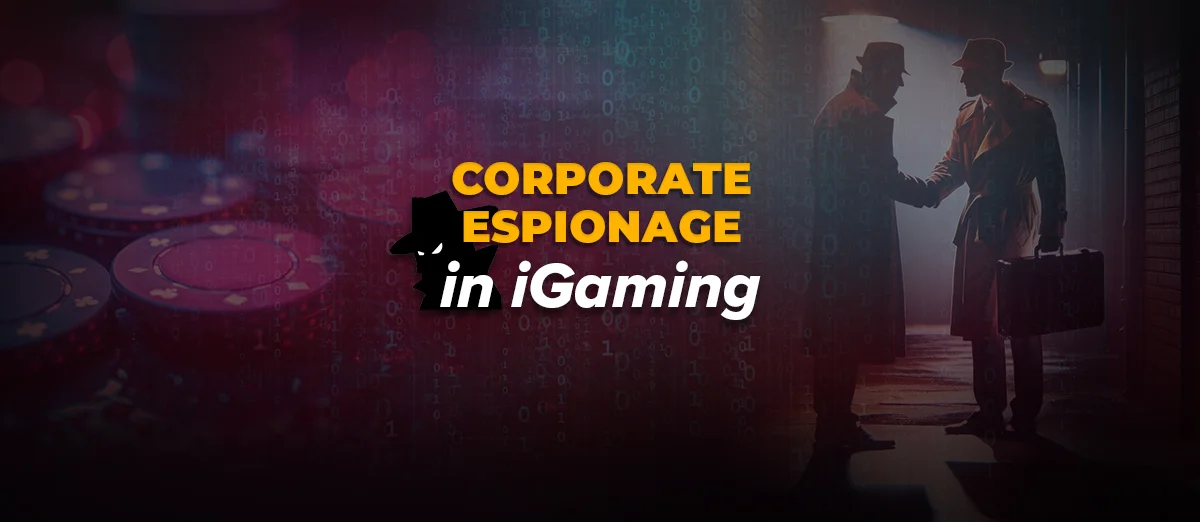The Rising Threat of Corporate Espionage in the Gambling Industry

The gambling industry has exploded in recent years, fueled by the rise of online betting and more relaxed gambling laws worldwide. This rapid growth has left the sector increasingly vulnerable to corporate espionage, where rivals aim to steal sensitive information or intellectual property to gain a competitive edge. With high stakes involved, both small players and industry giants are being targeted.
Essentially, espionage is a word more commonly associated to war - arguably the most notable being World War II when it was crucial for the Allied powers to gain an advantage, though in some cases, with devastating cost. Spies were invariably, heavily tortured if caught before being shot, though, not before passing on vital information in most cases, crucial to the overall war effort. Of course, espionage in this respect was necessary - mankind effectively counted on it. However, in the business sense of the word - especially today, it reflects just how far some people are still willing to go in order to gain an edge.
Corporate espionage in gambling can take many forms. Casino hacking, stealing customer data, or poaching employees with insider knowledge are all tactics that have been used. Companies pour millions into developing proprietary technology and marketing strategies, and when that information gets stolen, the financial and reputational damage can be huge.
One major factor that makes the gambling industry particularly vulnerable is its reliance on technology. Online platforms, algorithms, and software are the backbone of the industry, making them prime targets for espionage. Hackers or rivals that infiltrate these systems can steal algorithms that are critical to ensuring fair and profitable online gambling experiences. This means operators must invest heavily in cybersecurity and train employees to spot potential threats.

Bets, Breaches, and Betrayal
Corporate espionage in the gambling industry isn’t new, but some cases have highlighted just how deep it runs. One such example is the case of the Australian betting giant Tabcorp, and its rivals Sportsbet and Luxbet. In 2014, employees at Sportsbet were accused of gaining access to confidential information about Tabcorp’s betting markets. Armed with this insider knowledge, they were able to offer better odds and promotions, giving them a distinct advantage.
The fallout for Tabcorp was particularly significant from an overall business perspective. As their rivals undercut their offers, Tabcorp lost market share and saw a dip in revenue. These falls in revenue lead to Tabcorp announcing major layoffs. This case exposed how even established industry leaders can be vulnerable to insider leaks and espionage.
Another prominent case occurred in 2018 when PokerStars, one of the world’s largest online poker platforms, was embroiled in a massive espionage scandal. Hackers targeted PokerStars’ servers, stealing valuable information about their card-shuffling algorithms and user data. This stolen information was allegedly sold to rival companies, who could use it to gain an advantage by developing better strategies or enhancing their own offerings.
The breach not only damaged PokerStars’ reputation but also forced them to ramp up spending on cybersecurity. It makes it even more significant, given that PokerStars is a major brand in the industry and invariably made the rest of the sector sit up and take notice, redoubling their efforts in terms of safeguarding intellectual property.
But gambling industry espionage isn’t always about hacking. In some cases, companies have gone as far as hiring corporate spies to gather intelligence on their competitors. These spies collect information on online casino bonuses, marketing strategies, customer acquisition plans, and even partnership agreements, giving their employer a strategic advantage. This kind of sabotage can cripple a company’s ability to compete in an industry where every move counts.
How Espionage Threatened Playtech’s Gaming Empire
In a more recent example, Playtech, a major player in the gaming industry, was caught up in a corporate espionage gambling scandal that shook the sector. Playtech is a global provider of gaming software, supplying some of the largest gambling operators in the world. So, when hackers breached Playtech’s systems and stole sensitive software and algorithms, it was a big deal.
These algorithms form the backbone of Playtech’s success, ensuring that their platforms offer reliable and fair gambling experiences. The theft raised alarms about how vulnerable proprietary software can be in an industry that is so reliant on technology. It should also be noted that Playtech are no fools and invariably lead the way when it comes to industry software provision, held in high regard by the rest of the industry for their work.
Following the breach, Playtech had to completely revamp its cybersecurity systems and launch an investigation into the attack. Early speculation suggested that the hack could have been orchestrated by a competitor trying to replicate Playtech’s technology or disrupt their market dominance. There was also talk that the breach could have been politically motivated, aiming to destabilise the online gambling industry itself.
While the exact motives behind the hack remain unclear, there are a few likely scenarios. One possible goal could have been to steal Playtech’s algorithms and use them to develop a competing platform, bypassing the massive investment typically needed to create proprietary software. Another theory is that the hackers wanted to damage Playtech’s reputation and hurt their standing in the industry.
Whatever the reason, the Playtech case highlights just how high the stakes are for gambling companies in the digital age. A successful corporate espionage attempt can destroy a company’s finances, damage its reputation, and make it harder to attract new clients. It is why companies like Playtech are now spending big on cybersecurity, ensuring their trade secrets are protected from prying eyes.

Corporate Espionage in the Competitive World of Gambling
In a competitive market like gambling, corporate espionage is almost inevitable. The stakes are incredibly high, especially with the rise of online gambling and the legalisation of sports betting in many regions. Companies are constantly looking for ways to outdo one another, and sometimes, stealing a competitor’s secrets is seen as the quickest route to success.
One of the main drivers of espionage in the gambling industry is the immense value of intellectual property. Proprietary software, algorithms, and customer data are all goldmines for competitors. For example, a company that manages to get hold of a rival’s customer database could use that information to target those players with personalised sportsbook or casino promotions, poaching them from the competition.
Similarly, if a rival gains access to an operator’s gaming algorithms, they can replicate popular casino games or betting systems without the heavy research and development (R&D) costs. In a sector where acquiring customers can cost millions in marketing, any shortcut that can lower costs and boost profits could well be extremely tempting.
Another reason corporate espionage thrives in the gambling industry is that the penalties are often not severe enough to deter companies from engaging in these shady tactics. In some regions, the risk of getting caught is seen as a minor setback compared to the potential rewards.
The Long-Term Impact of Gambling Industry Espionage
While corporate espionage might offer short-term gains, the long-term effects can be devastating. For the companies that fall victim to espionage, the immediate financial losses are just the tip of the iceberg. Perhaps the bigger hit comes from reputational damage. Cases like the Playtech scandal grab headlines, and when consumers start questioning the fairness and security of online gambling platforms, the entire industry suffers. A loss of trust can lead to a significant decline in players, which in turn affects revenues.
Another major concern is the stifling of innovation. Companies that are constantly worried about having their ideas stolen may hesitate to invest in new technology or take risks on new products. This fear of espionage can slow down the growth of the entire industry, limiting the development of exciting new games and features. In this industry especially, brands are, in increasing frequency developing their own proprietary technology for white label purposes as well, so there is an even greater emphasis on making sure that there is protection in place.
Despite the negative aspects though, there is an argument that corporate espionage can also drive positive changes. This is because companies that invest heavily in protecting their intellectual property and cybersecurity could emerge as industry leaders, setting new standards for the sector. In this way, the threat of espionage could push companies to innovate and adopt cutting-edge security measures, ultimately benefiting the industry as a whole.
How the Gambling Industry Protects Its Secrets
In terms of what gambling companies do to protect themselves from corporate espionage, they likely begin by taking a proactive approach. As a result, investing in advanced cybersecurity systems, regularly updating software, and educating employees about the risks of insider threats are crucial steps. Companies should also consider tightening access controls and monitoring for unusual activity that might signal an attempted breach.
At the same time, regulators need to step up and create a legal framework that penalises corporate espionage and protects intellectual property. By working closely with operators, regulators can help ensure that the industry remains a fair and competitive space. In an industry where margins are tight and competition is fierce, maintaining integrity and safeguarding intellectual property will be key to long-term success.
What might come as a surprise to many though is that, mostly, the industry is very tight nit - a lot of, especially senior executives know their peers at other brands and, indeed may have worked with them, even socialised together. Especially in gambling hubs such as Gibraltar or Malta where, often friends work for all of the different companies and on occasion see each other outside of work.
While corporate espionage is a threat, with the right precautions, companies can minimise its impact and continue thriving in this fast-paced landscape.





Review this Blog
Leave a Comment
User Comments
comments for The Rising Threat of Corporate Espionage in the Gambling Industry